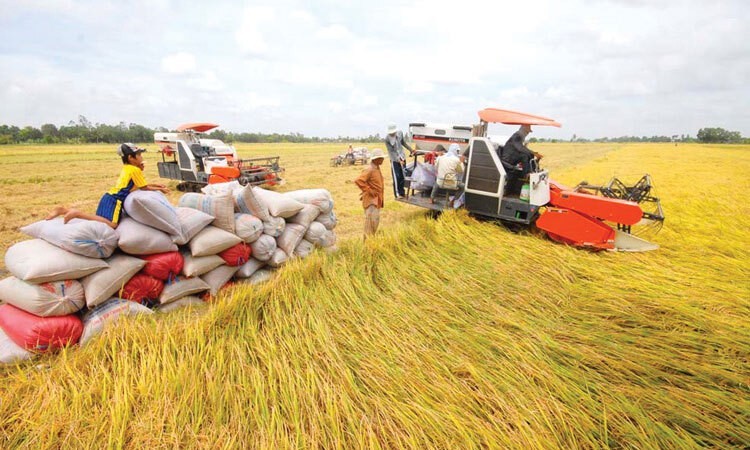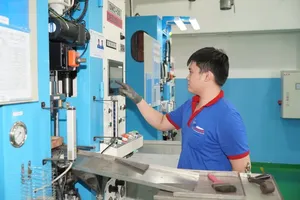These loans will feature preferential interest rates with a 1 percent reduction and allow unsecured loans of up to VND3 billion.

On October 15, at a briefing by the Central Propaganda and Education Committee, a representative from the State Bank shared details about the plan to implement the project “Sustainable Development of 1 Million Hectares of High-Quality Rice Linked to Green Growth in the Mekong Delta by 2030,” in line with Decision No. 1490/QD-TTg by the Prime Minister.
SBV announced that the loan program for rice production, processing, and consumption will be rolled out in two phases. The pilot phase, led by the Vietnam Bank for Agriculture and Rural Development, will run from now until the end of 2025. The expansion phase will follow from 2026 to 2030, involving other credit institutions.
As part of SBV's directive, the interest rate for loans under this project will be reduced by at least 1 percent per annum compared to standard loan rates. Additional incentives, such as unsecured loans, special debt handling mechanisms, and encouragement to purchase agricultural insurance, will also be implemented.
Under the guidelines of SBV, customers involved in rice production partnerships will benefit from various credit incentives. Unsecured loan amounts can range from VND100 million to VND3 billion, depending on the type of borrower— individuals, cooperatives, or cooperative groups. Particularly, for high-tech agricultural projects and collaborative models, unsecured loans can cover up to 70 percent-80 percent of the project or plan’s value.
SBV has sent instructions to the People’s Committees of Mekong Delta provinces and cities, as well as to credit institutions, to ensure prompt implementation. However, the disbursement of loans will rely on the publication of actual cost benchmarks and the identification of specialized farming and partnership areas.
To assist customers facing financial difficulties, the State Bank has introduced a flexible debt management policy. Those affected by objective factors or force majeure events may have their repayment terms rescheduled while maintaining their current debt classification. In cases of severe impacts, such as natural disasters, epidemics, or challenges faced by large enterprises, banks may freeze debts to help customers through tough periods.
Additionally, banks have encouraged farmers and businesses to purchase agricultural insurance by offering interest rate discounts. This reduction could be at least 0.2 percent per year compared to regular interest rates for loans of the same type and term.
























